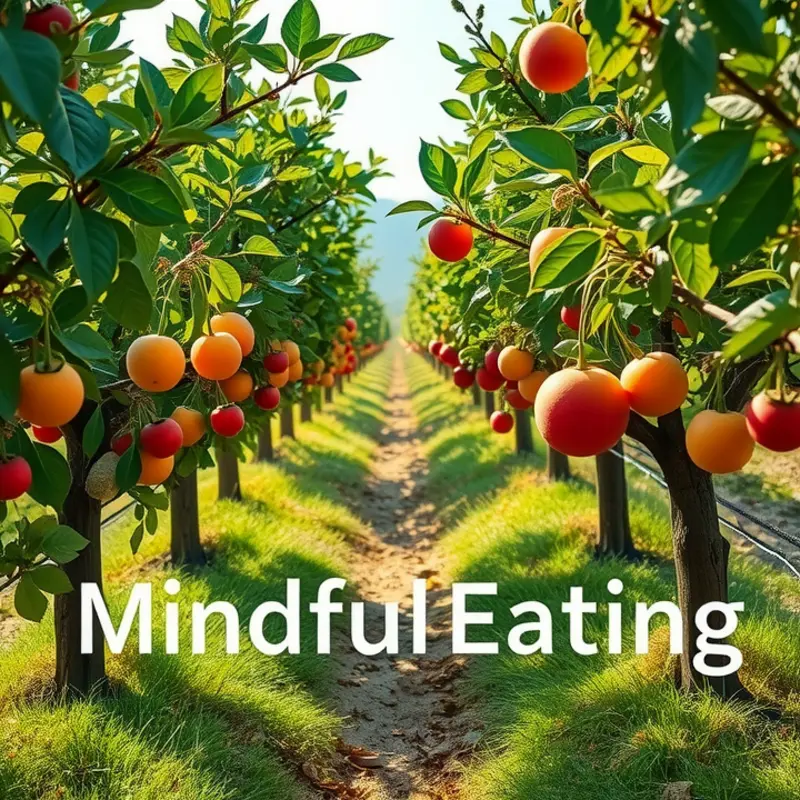Curiosity about food goes beyond mere taste; it’s a gateway to understanding our emotions, behaviors, and mindfulness. By exploring the nuances of food curiosity, we can empower ourselves to make healthier choices. This journey not only nurtures our bodies but also supports our emotional well-being, ultimately fostering healthier habits and a positive relationship with food. Let’s delve into how food curiosity can pave the path for mindfulness in our eating practices.
The Intriguing Allure of Food: Understanding Our Curiosity

Why do we feel an almost irresistible pull towards new food experiences? Our curiosity about food goes beyond mere survival—it is deeply rooted in psychology. Exploring the nuances of this curiosity reveals a tapestry woven from sensory engagement, cultural influences, and emotional connections.
Sensory experiences play a significant role in our curiosity about food. The first bite of a dish can evoke strong reactions, eliciting memories or provoking an emotional response. Our senses of taste, smell, sight, and even touch work in unison to create a comprehensive experience. The crispness of a fresh apple, the vibrant color of a ripe tomato, or the warm aroma of freshly baked bread can all trigger a cascade of emotions, encouraging us to explore further. This sensory engagement feeds our emotions, providing comfort, excitement, or nostalgia.
Cultural influences significantly impact our curiosity about food as well. Exposure to different culinary traditions opens pathways to new flavors and textures, enriching our palate. Dining in a foreign country or trying a new dish from a different culture can evoke a sense of adventure. Each meal carries with it the history and identity of a culture, connecting us to the stories and traditions of others. Exploring culinary influences from trade can deepen our appreciation for global cuisines and prompt us to incorporate these elements into our eating habits.
Food is also intrinsically linked to our emotions. Celebrations are often marked by specific meals, while comfort food offers solace during difficult times. The emotional ties we form with certain foods can shape our eating habits, influencing our preferences and curiosities. Understanding these emotional connections can illuminate behavioral patterns. For instance, recognizing a tendency to gravitate towards sweet treats during stressful periods can pave the way for mindful adjustments.
Adopting a curious mindset towards food has numerous benefits. It encourages healthier consumption habits by diversifying our diet and ensuring nutritional adequacy. Trying a variety of foods prevents dietary monotony and potential nutritional deficiencies. Moreover, curiosity leads to more mindful eating practices. By savoring each bite, we become more attuned to our body’s true hunger signals, avoiding unconscious eating and fostering a healthier relationship with food.
The allure of food curiosity is powerful, capable of enhancing our emotional well-being. By understanding the psychological drivers and adopting a curious mindset, we can transform our relationship with food into a more enriching and healthful journey.
Mindful Eating: Harnessing Curiosity for Emotional Balance

Eating mindfully can be transformative. Developing curiosity about our food helps us engage with meals in a way that nourishes more than just the body. This curiosity begins with engaging all five senses. When you take a moment to notice the vibrant colors of fresh vegetables, the aroma of herbs, the sound of a crisp bite, the texture of grains, and the intricate layers of flavor, you immerse yourself fully in the experience of eating.
Engaging your senses in this way not only amplifies enjoyment but can also foster a deeper connection to the food itself. Reflecting on the origins of your meal adds another layer to this connection. Consider where your food comes from. Think about the journey it made to your plate. Was it grown in a neighboring farm, or did it travel across the globe? Reflect on the cultural history attached to certain dishes, which can lead to a greater appreciation for global cuisines, as discussed in this article about culinary influences.
Being present during meals requires us to step back from distractions. Resist the pull of screens or hurried conversations. Allow yourself the space to savor each bite, noticing how the flavors evolve as you chew. This practice encourages us to eat slowly and listen to our body’s satiety cues, reducing overeating and promoting satisfaction with smaller portions.
Personal food narratives also play a role in mindful eating. Our relationships with food are often informed by past experiences or cultural histories. Understanding these narratives can help disentangle emotional eating patterns. Ask yourself how certain foods make you feel or what memories they evoke. This reflective practice helps separate emotional triggers from physical hunger, aiding in the development of healthier eating patterns.
Incorporating these mindful eating practices into daily life might initially feel challenging. But with consistent practice, they can fundamentally alter your relationship with food. By harnessing curiosity and being genuinely present during meals, you cultivate a balanced emotional state. This not only enhances how you experience food but also fosters a supportive environment for a more balanced diet, leading to improved overall well-being.
Final words
Understanding the psychology behind food curiosity can be a significant step toward improving emotional health and fostering mindful eating practices. By embracing a curious mindset, we open ourselves to new experiences and connections with the food we consume. This journey not only enhances our relationships with food but also nourishes our mental and emotional well-being. Remember, every meal is an opportunity to explore, learn, and grow—one bite at a time.







